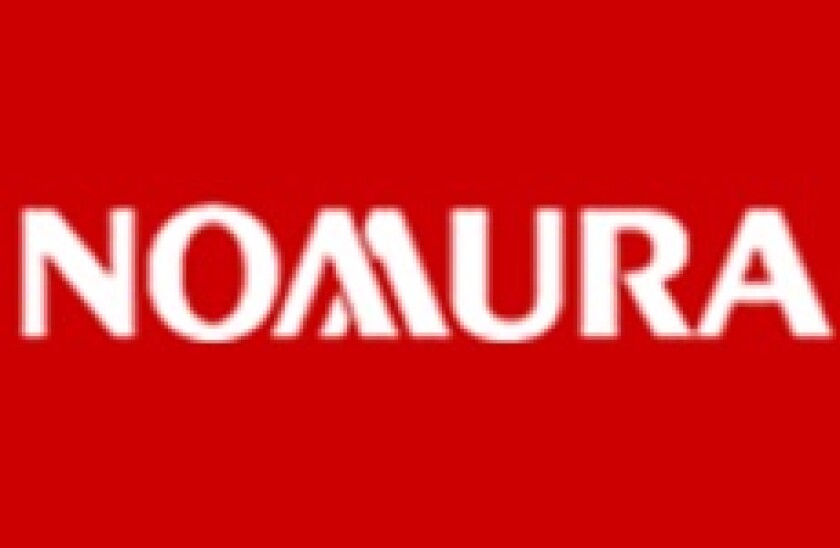For Nomura, this is not a moment too soon. At its last investor day in spring 2015, Nomura’s wholesale business reported a 90% expense ratio, a pretax margin of 10% and a fee pool market share of 3.2%.
In its international business (contributing ¥50bn (€405m) of the ¥125bn pretax income in the wholesale division) things were worse still. Nomura could only trumpet a “significant decline in international pretax losses”.
Rather than losing ¥129bn in 2011-2012, it lost only ¥16bn in 2014-2015, and would have been profitable had it not been for litigation reserves. Somewhat ominously, the investment bank seemed to be pinning its 2020 targets on a growth in market share against a flat fee backdrop, along with a clutch of banking buzzwords such as “delivering the firm” and seeking more multiproduct deals.
What is particularly interesting about Nomura’s move, is that it is mostly divorced from the capital and regulation concerns dogging other investment banks.
Deutsche Bank and Credit Suisse, though much larger firms, are going through equally painful restructurings, but these are focused on husbanding capital resources as carefully as possible.
Nomura, by contrast, seems to be doing the opposite. The businesses it plans to close in Europe are the kind all the other banks want to keep, because they require little balance sheet and generate fee or commission income, rather than spread or risk-taking income.
So it is closing equity capital markets, equity sales (of European products) and equity research in Europe, alongside equity derivatives and equity structured products. The rationale is simple: these business lines do not make money, or at least, not enough to keep them around.
Research is a cost centre anyway, but presumably it is doing too little to drive flow through Nomura’s equity brokerage platform, Instinet, and doing too little to help Nomura win ECM mandates — it is outside the top 25 so far this year. Equity sales, too, is harder to see as a competitive advantage when it is simply pointing clients to an electronic agency broker, rather than acting as the gatekeeper to hot IPO allocations.
What Nomura wants to keep and invest in also runs against the grain.
The bank is rightly proud of rates and flow credit, both areas of shrinkage across the Street, while in investment banking, it chooses to highlight SSA origination as a standout area. Elsewhere, though, the Swiss banks have both shut their SSA operations, while plenty of banks are soul searching over the costs of primary dealerships.
These decisions underlines what cooler heads in investment bank management teams have been saying for some time — the right business model to end up with depends on where you started out.
Not everyone can “do a UBS” and hack away at the expensive parts of fixed income to allow a top tier advisory, ECM and FIG franchise to flourish. Following that strategy depends on having a top tier advisory, ECM and FIG franchise to start off with.
For banks which might be sub-scale, being sub-scale in ECM is probably a worse fate than the equivalent in debt. The overheads are large, the market can shut entirely for long periods, and issuers do not have a natural need to keep returning to market.
As one senior banker running both products said: “In its peak years, the economics of the equity origination business are roughly as good as the debt business in an ordinary year. Would you rather have a business that made $100m off 10 deals with a cost/income ratio of 110% or $100m off 800 deals with a cost/income ratio of 60%?”
So Nomura’s decision, grim as it must have been, should be applauded. Full details will be revealed on April 27 at its investor day, but at first glance, it looks like it has taken a detailed look at its idiosyncratic strengths and weakness, refused to follow fashion, and taken a firm step in the right direction. Pity the staff that will lose their jobs because of it, but it is surely the right move for Nomura.

